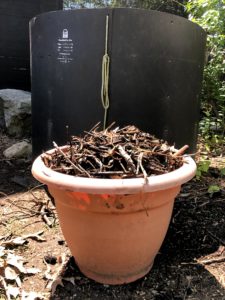Summer of 2022 is a serious drought in Massachusetts. Lots of people and organizations are providing lots of good information about how to help plants survive drought conditions, but few are talking about soil health to combat drought, so I’d like to provide a bit of information to folks about it.
Continue readingTag Archives: Compost
Junk mail and bills for your compost?

Is it safe to compost junk mail and bills? As you may know, newspaper is generally safe and something I have few qualms about.
Bills and junk mail are a different story, because the printed text and images are made with toner rather than ink. Toner is little more than finely ground plastic.
Determining the safety of printed products can get complicated, but here is a brief rundown of why I suggest you stay away from composting your bills, junk mail and home printed materials.
Continue reading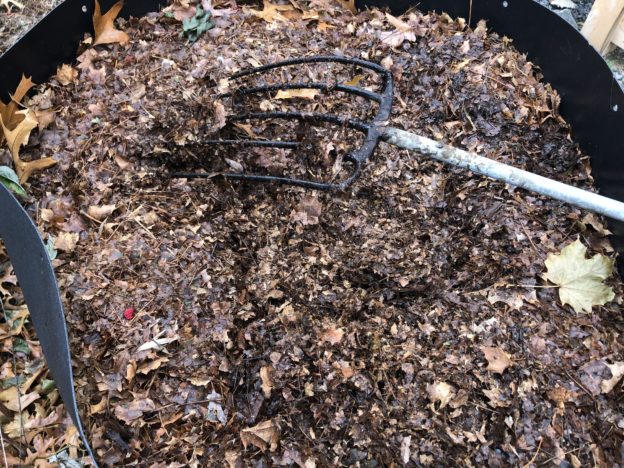
What about leaves?
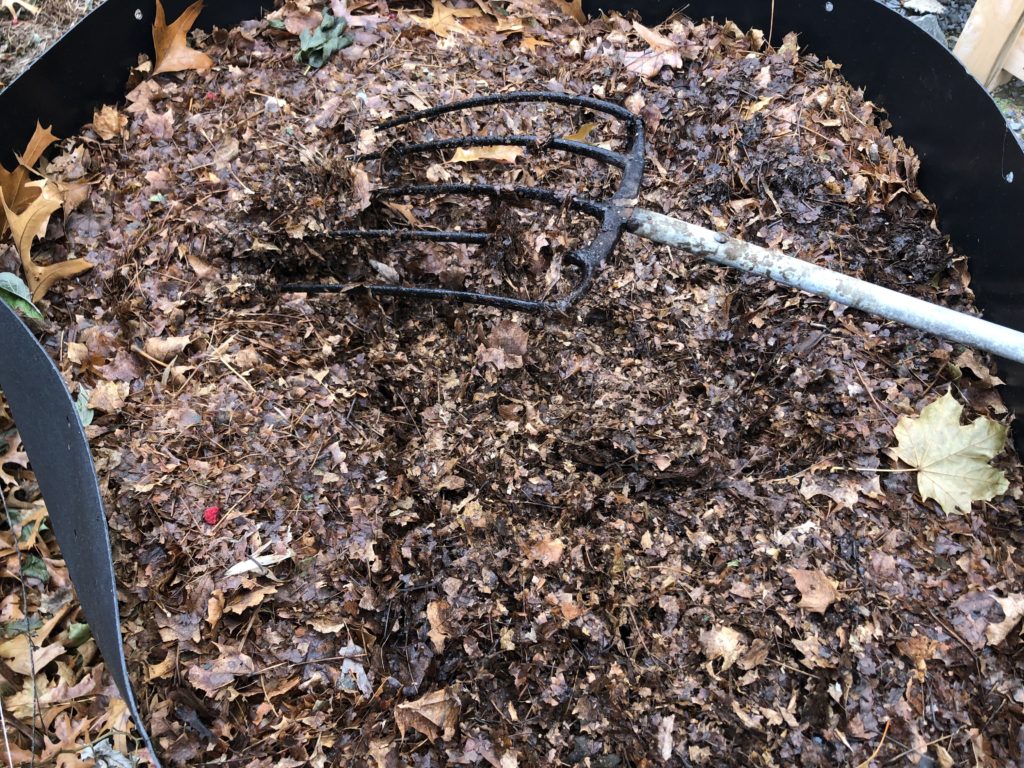
Leaves have become a hot topic recently (finally), so I’d like to briefly address it.
Continue reading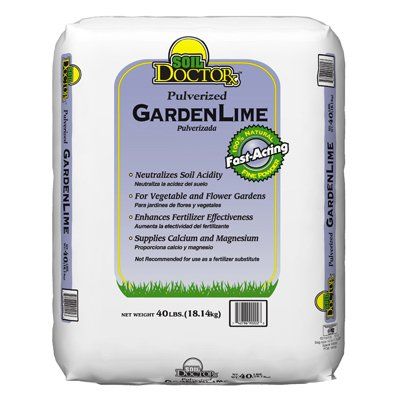
Stop wasting time and money on amendments
Trouble with your garden last year and you’re wondering what amendments will fix it? It is time to stop treating your garden like most Americans treat their health woes: With a pill or a fad.
Why a pile of leaves gets hot
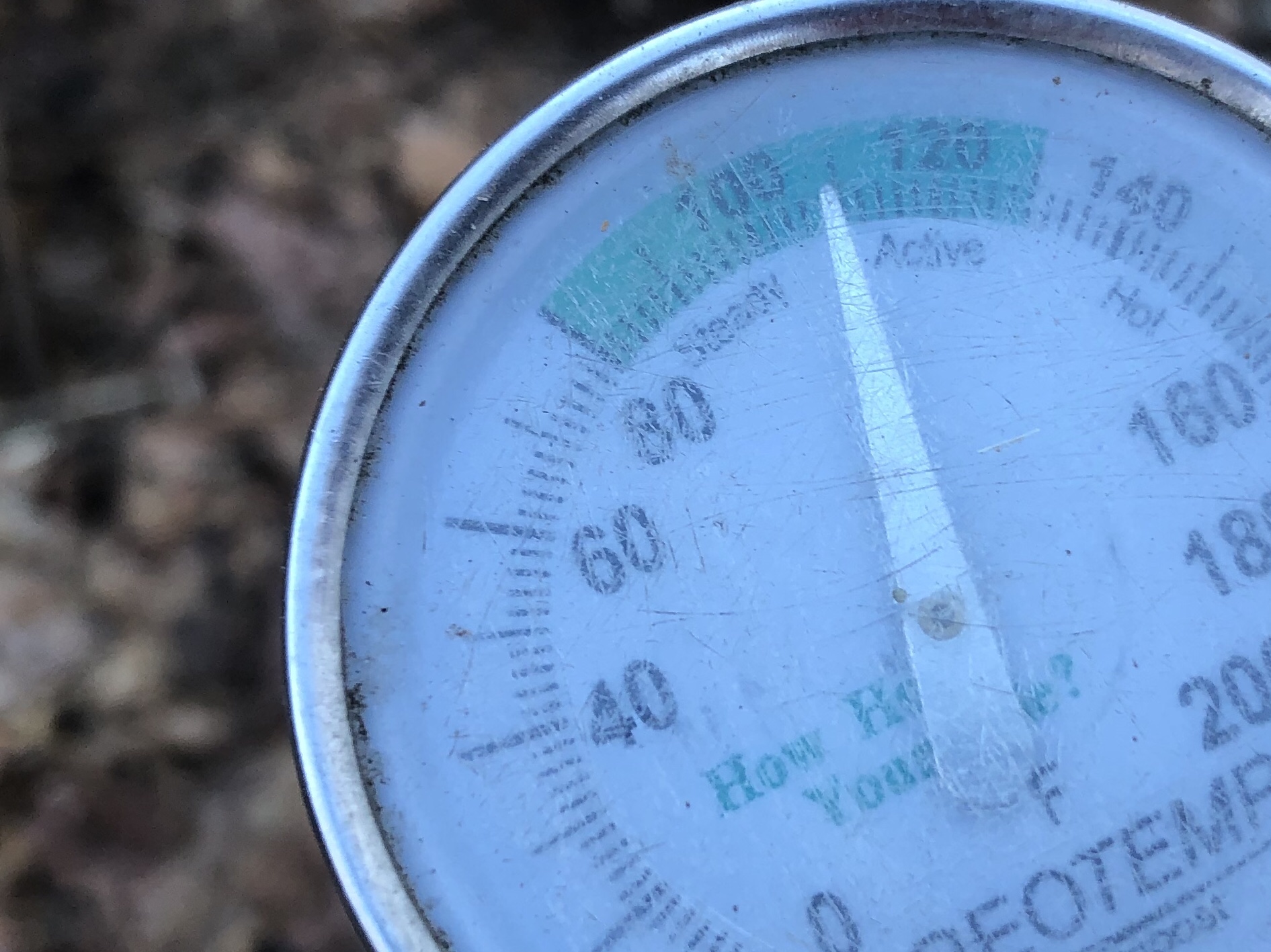
110° F pile of just leaves.
The power of volume. It is 11°F right now but this pile of leaves, approximately 1 cubic yard, is 110°. It is just leaves – no grass or nitrogen source. Continue reading
Why shred leaves?
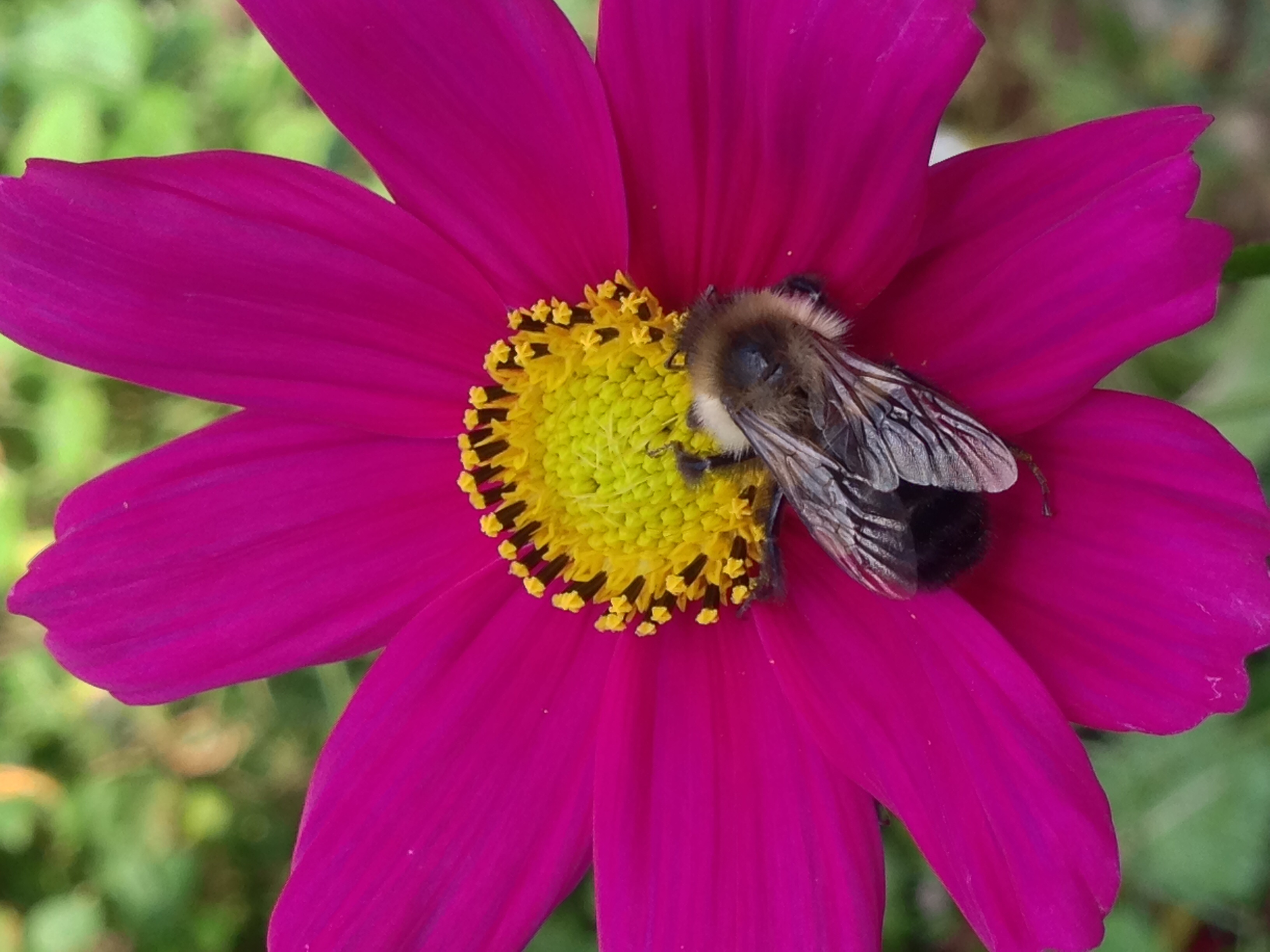 Is it necessary to shred leaves for the compost? No, absolutely not, but doing so provides a number of benefits. Continue reading
Is it necessary to shred leaves for the compost? No, absolutely not, but doing so provides a number of benefits. Continue reading

Myth and mystery of cover crops
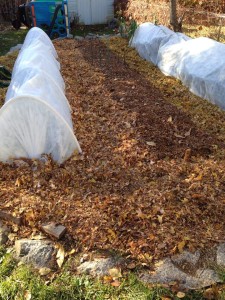
Shredded leaves keep soil in place, add nutrients to the soil and make a great, soft path material to keep weeds down. You can even alternate leaf-variety for patterns.
Cover crops are popular. People claim cover crops will add nitrogen to your soil (sometimes, sort of, but not much), they’ll protect the soil (kind of, sometimes) and prevent weeds (or they’ll act as weeds).
Let’s take a deeper look at this now that the end of the season is upon us.
More about sticks in the compost
A few days ago I wrote a bit about why intentionally putting sticks in the compost makes no sense.
I want to address this a wee bit more to explain why the sticks don’t decompose in your home compost in a time frame most people find acceptable. This is going to require a bit of science but not too much, and there’s chocolate at the end, I promise.
No sticks in the compost!
For years I have told classes “If you put sticks in, you’ll need to pull sticks out,” and here’s an example of why: That’s a big bucket of sticks, raspberry canes and similar woody items I pulled from the finished 1 cubic yard compost bin behind it.
It is basically the same amount of sticks I put into the bin in the first place, meaning they were useless in the compost.
I ran this little experiment so you don’t have to, and because I’ve grown tired of the refrain that one should put sticks in compost, whether to increase aeration – as if those pores don’t get filled with other materials – or for other reasons. Continue reading
Compost and 2 feet of snow
We got around two feet of snow yesterday. Join me for a quick walk down the steps and through the raspberries to look at one of our bins to see how it’s doing.


